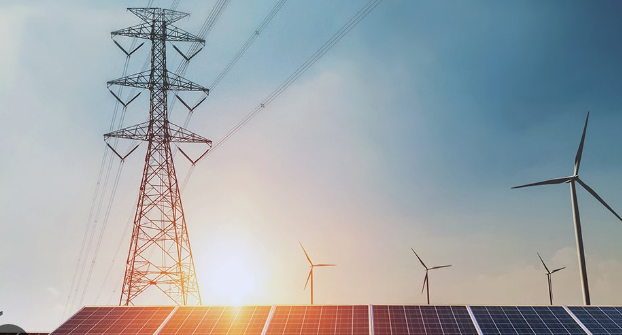South Africa is at a crossroads, with electrical technology innovation having the potential to alter the country’s destiny. With a growing population, more urbanization, and a desire for sustainable development, the country is turning to modern electrical technology to meet its energy needs and propel progress. This looks at recent advancements in South African electrical technology and how they affect the country’s future
Renewable Energy Revolution
South Africa has made great progress in renewable energy, particularly in terms of solar and wind power. The country’s geographical location provides an abundance of sunlight and wind, which have been capitalized on through large-scale solar farms and wind turbines. South Africa’s dedication to renewable energy is demonstrated by projects such as the Jasper Solar Energy Project in the Northern Cape, which is one of Africa’s largest solar farms. These projects not only cut dependence on fossil fuels, but they also generate jobs and stimulate local economies.
Smart Grids & Digitalization
The move to smart grids is yet another significant milestone in South Africa’s electrical technology environment. Smart grids use digital communication technologies to monitor and respond to local demand changes, improving the reliability and efficiency of power delivery. Eskom, South Africa’s principal energy supplier, has launched various pilot programs to integrate smart grid technologies. These projects attempt to reduce power interruptions, optimize energy use, and give consumers with real-time data, allowing them to make more informed energy use decisions.
Energy Storage Solutions
Energy storage technology is critical for the efficient use of renewable energy. South Africa has been looking into various energy storage methods, such as battery storage and pumped hydropower storage. The country is home to Africa’s first utility-scale lithium-ion battery storage plant, located in the Eastern Cape. These storage systems help to stabilize the grid by storing surplus energy created during peak production times and releasing it when demand is high, resulting in a consistent power supply.
Electrified transportation
South Africa is seeing an increase in transportation electrification, spurred by the need to reduce greenhouse gas emissions and dependency on imported oil. Advances in battery technology are helping to accelerate the adoption of electric vehicles (EVs), making them more affordable and efficient. charge infrastructure is increasing, with government and private sector collaborations forming to establish charge stations across the country. This transition not only promotes environmental sustainability, but it also creates economic prospects in the production and servicing of electric vehicles.
Electrified transportation
South Africa is seeing an increase in transportation electrification, spurred by the need to reduce greenhouse gas emissions and dependency on imported oil. Advances in battery technology are helping to accelerate the adoption of electric vehicles (EVs), making them more affordable and efficient. charge infrastructure is increasing, with government and private sector collaborations forming to establish charge stations across the country. This transition not only promotes environmental sustainability, but it also creates economic prospects in the production and servicing of electric vehicles.

Obstacles and Prospects for the Future
South Africa still has a ways to go before fully using the achievements it has made in electrical technology. It is imperative to tackle matters like budgetary limitations, regulatory obstacles, and the requirement for the creation of a competent labor force. To get beyond these obstacles and promote further advancement, cooperation between the public and private sectors as well as academia is essential.
Looking ahead, a future with more sustainable, dependable, and equitable energy is promised by South Africa’s dedication to electrical technology innovation. The country can guarantee that its energy infrastructure supports economic growth, environmental sustainability, and a higher standard of living for all of its residents by continuing to invest in and implement cutting-edge technologies.
In conclusion, major developments in energy storage, smart grids, renewable energy, transportation electrification, and rural electrification have paved the way for South Africa’s transition to an electrified future. Not only are these advancements changing the energy environment, but they are also opening the door to a more wealthy and sustainable future.